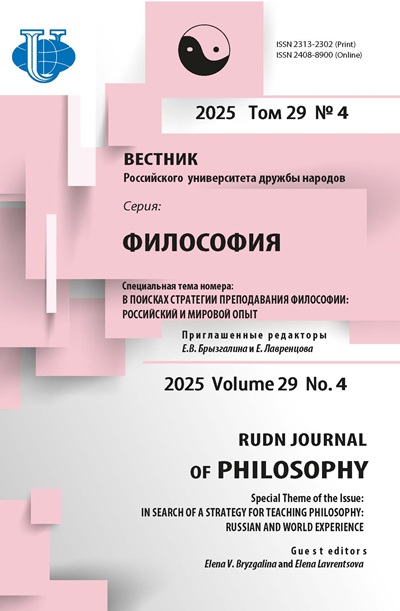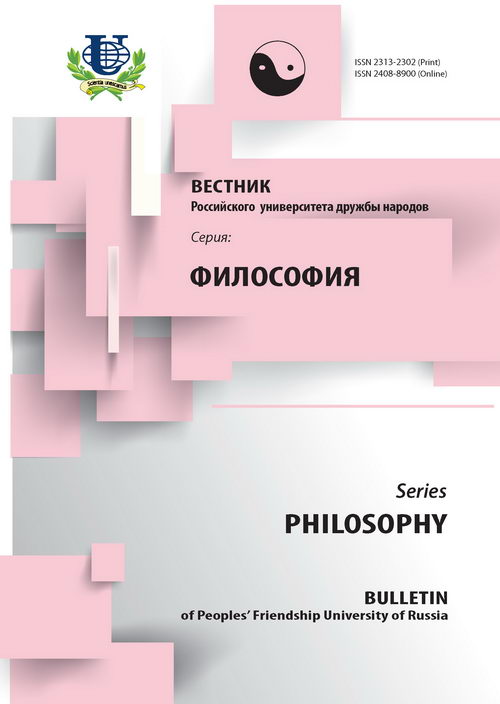ЭМЕРДЖЕНТНОСТЬ, МНОГООБРАЗИЕ ОБЪЯСНЕНИЙИ ВСЕОБЩНОСТЬ ЗАКОНОВ(часть II)
- Авторы: Шрёдер Ю.1
-
Учреждения:
- Hanse Institute for Advanced Study
- Выпуск: № 2 (2011)
- Страницы: 35-44
- Раздел: Статьи
- URL: https://journals.rudn.ru/philosophy/article/view/11475
- ID: 11475
Цитировать
Полный текст
Аннотация
Статья посвящена вопросу об условиях правомерного применения понятия эмерджентности к тем или иным качествам макромира. Главная цель статьи - показать, что введенное Ч.Д. Броудом ограничение на приемлемость дедукций макрокачеств, призванных показать, что макрокачества не являются эмерджентными, является слишком строгим и должно быть заменено более мягким, согласно которому эти дедукции должны быть нетривиальными. Во-первых, следует уточнить применяемое в этом случае понятие всеобщности. По мнению автора, закон является всеобщим, если и только если он применим к многообразию явлений в отношении того, что автор обозначает как «конститутивные свойства данной области» явлений. Для обоснования тезиса о чрезмерной строгости ограничений Броуда в статье анализируется три примера объяснения макрокачеств, взятые из области робототехники и биологических наук. Как показано в статье, все объяснения, приведенные в качестве примеров, нетривиальны, а, следовательно, объясняемые с их помощью качества не являются эмерджентными. В заключение кратко определяются три основные типа нетривиальных объяснений.
Ключевые слова
Об авторах
Юрген Шрёдер
Hanse Institute for Advanced Study
Email: hwk@h-w-k.de
Hanse Institute for Advanced Study
Список литературы
- Achinstein P. Law and Explanation. - Oxford: Clarendon Press, 1971.
- Alexander S. Space, Time and Deity. - London: Macmillan, 1920.
- Aoki I. A simulation study on the schooling mechanisms in fish // Bulletin of the Japanese Society of Scientific Fisheries, 48. - 1982. - Pp. 1081-1088.
- Bornhofen S., Lattaud C. Outlines of Artificial Life: A Brief History of Evolutionary Based Models // Lecture Notes in Computer Science. - Vol. 3871. Berlin, Heidelberg: Springer. - 2006. - P. 226-237.
- Beckermann A. Property Physicalism, Reduction and Realization // M. Carrier & P. Machamer (eds.). Mindscapes. Philosophy, Science, and the Mind. - Konstanz/Pittsburgh: Pittsburgh University Press, 1997. - P. 303-321.
- Breckling B., Reuter H. The Use of Individual Based Models to Study the Interaction of Different Levels of Organization in Ecological Systems // Senckenbergiana maritima 27. - 1996. - P. 195-205.
- Broad C.D. Mind and its Place in Nature. - London: Routledge & Kegan Paul, 1925.
- Bunge M. The Mind-Body Problem. A psychobiological Approach. - Oxford: Pergamon, 1980.
- Cariani P. Emergence and Artificial Life // C. Langton, C. Taylor, J. Farmer, S. Rasmussen (eds.). Artificial Life II. - Addison-Wesley, 1991. - P. 775-97.
- Dennett D. Brainstorms. - Cambridge, Mass.: MIT Press, 1981.
- Froese T., Ziemke T. Enactive artificial intelligence: Investigating the systemic organization of life and mind // Artificial Intelligence. - 2009. - 173:3-4. - P. 466-500.
- Humphreys P. Aspects of Emergence // Philosophical Topics. - 1996. - 24. - P. 53-70.
- Humphreys P. How Properties Emerge // Philosophy of Science. - 1997. - 64. - P. 1-17.
- Hütteman A., Terzidis O. Emergence in Physics // International Studies in the Philosophy. - 2000. - 14. - P. 267-281.
- Kim J. Downward Causation in Emergentism and Nonreductive Physicalism // A. Beckermann, H. Flohr, J. Kim, (eds.). Emergence or Reduction. - Berlin, New York: de Gruyter, 1992. - P. 119-138.
- Kim J. Supervenience, Emergence, and Realization in the Philosophy of Mind // M. Carrier and P. Machamer (eds.). Mindscapes: Philosophy, Science, and the Mind. - Konstanz / Pittsburgh: UVK / University of Pittsburgh Press. - 1997. - P. 271-93.
- Lewes G.H. Problems of Life and Mind. - Vol. 2. - London: Kegan Paul, Trench, Turbner & Co. - 1875.
- Lycan W. Consciousness. - Cambridge, Mass.: MIT Press, 1987.
- Morgan C. L. Emergent Evolution. - London: Williams & Norgate, 1923.
- Mill J.St. A System of Logic. - 4th edn. - London: Parker & Son, 1872.
- Resnick M. Learning about Life // Artificial Life. - 1994. - 1. - P. 229-42.
- Reuter H., Breckling B. Selforganization of fish schools: an object oriented model // Ecological Modelling. - 1994. - 75/76. - P. 147-159.
- Schröder J. Emergence: Non-Deducibility or Downwards Causation? // The Philosophical Quarterly. - 1998. - 48. - P. 433-452.
- Stephan A. Emergenz: Von der Unvorhersagbarkeit zur Selbstorganisation. - Dresden: Dresden University Press, 1998.
- Steels L. Towards a Theory of Emergent Functionality // J.-A. Meyer and S.W. Wilson, (eds.). From Animals to Animats. - Cambridge, Mass.: MIT Press, 1991. - P. 451-461.
Дополнительные файлы















